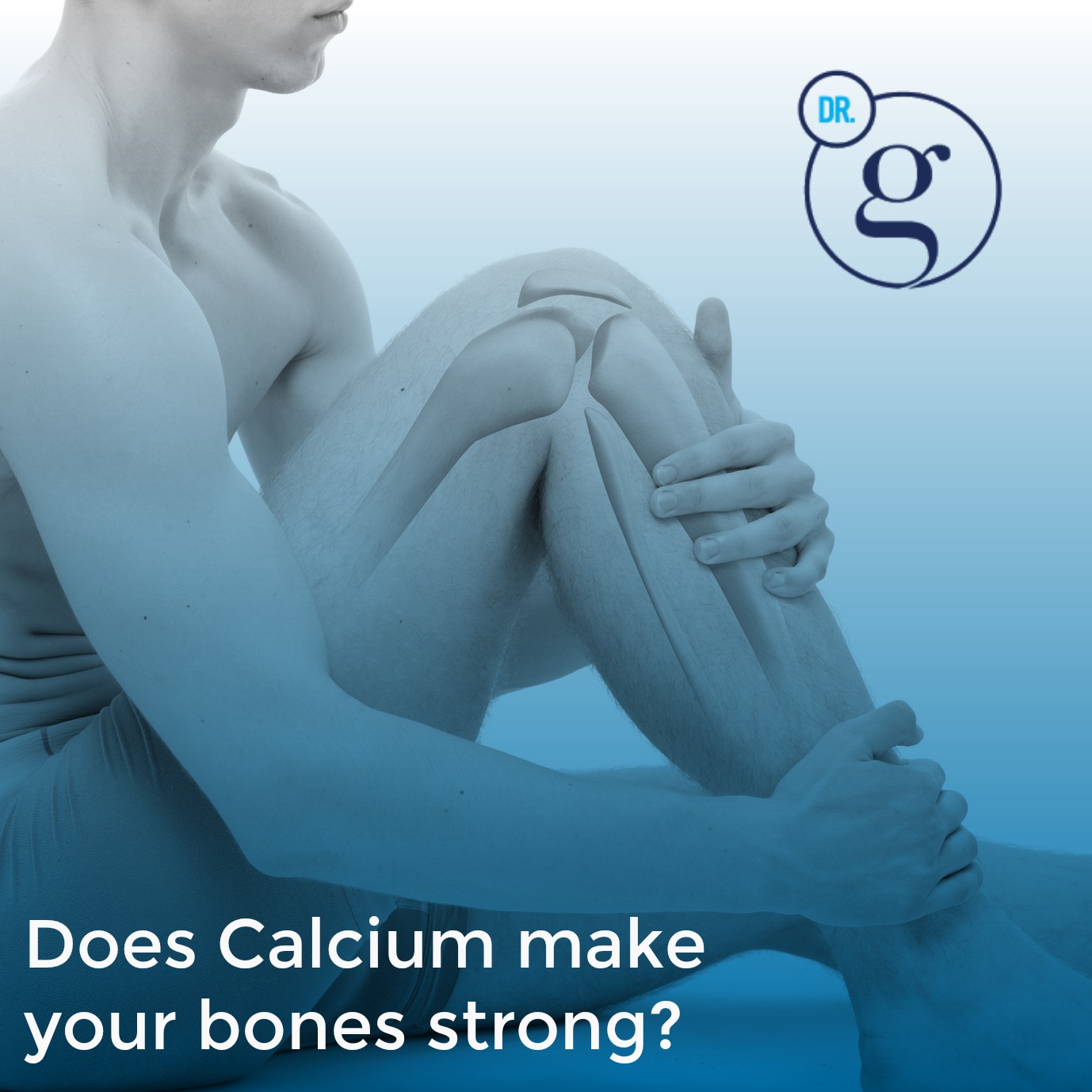

Bone up on your bone health
Posted on February 24, 2018 by Dr. G
Its not about Calcium
Truly understanding bone health.
Are your bones structured like a brick wall? The bricks are the calcium that make up our bone mass, the mortar are all of the co-factors needed to hold the brick in place and direct the bricks where they need to go, these cofactors include, magnesium, phosphorous and others. This hypothesis has been the basis of the rationale for taking the same nutritional supplements that have NOT worked for years. Unfortunately according to research, this approach has not been yielding results in reducing fractures. As a matter of fact countries with the highest calcium consumption have the highest rate of hip fractures.
My elderly mother, Zoe, had a dramatic shift in her Z and T scores on her bone density test (she’s gonna kill me for calling her elderly). She had been diagnosed with osteopenia over 20 years ago, which progressed to osteoporosis in a recent test. 1 year earlier her T-Score had been -2.4 (20 years ago she was -1.9. The more recent test showed a shift to -3.2). -2.5 and less is considered osteoporosis. This prompted all kind of questions from her doctor about taking her calcium supplements, eating more dairy (which I discourage) and for her to begin taking one form or another of prescription medication.
A mentor of mine once said, “if they put powder on your ass, they won’t listen to you”. He was referring to doctors trying to ‘doctor’ their parents, grandparents, and any other member of the family who changed your diaper. That is good advice, we doctors should refer our family members to someone we know and trust. With that being said, the 2 decades advice I had been giving my mother was going in one ear and out the other, but this time she saw my conviction and how her physician answered or failed to answer my questions. She began to think, ‘hmmm maybe my son can help’. We all agreed (her doctor did not really agree, but saw I was not going to give in) to a 6 month process of listening to my dietary advice, supplement recommendations and some basic lifestyle changes.
We focused on supplements that had little to do with adding calcium to the diet. As a matter of fact I told her to stop taking 1000 mg of calcium, which she had been doing on and off for many years. Instead, we addressed inflammation at the level of the cell and cell signaling, we also looked at how we can give the hormonal system what it needs to do what it was intended to do. We provided supplements that provided elemental minerals found in rich soil that would produce nutrient dense vegetables. My mother is 30 years into menopause, however the body is still supposed to actively produce trace levels of hormones that would contribute to better bone health. The ingredients we focused on can be found in these 2 products from Cyrene Labs. This is a topic I’ve written about in the past, as with most topics we have to update with new information and more important new action steps that can be taken.
After 6 months of my mother taking her supplements (no supplemental calcium), avoiding extra dairy (Can’t take cheese away from a Greek, Yiayia) and not listening to anything else I had to say, a 2nd bone density test was performed and the results were astounding. She went from -3.2 to -2.2. Better than where she was a year earlier at -2.4. This is not a clinical trial type study, however it is an N=1 case study and should not be ignored.
You may be wondering ‘why no calcium supplements?’ The research is pretty clear that calcium supplementation can result in calcium being deposited in places other than bone, such as blood vessels resulting in hardening of the arteries, poor circulation and high blood pressure. The supplemental calcium can be deposited in our joints contributing to further degeneration of spine, knees and hips. Being greek, my mother had a fairly balanced mediterranean diet, with lots of vegetables, nuts, seeds and healthy meats and fish, all great sources of calcium. The British Medical Journal determined;
“Conclusions: Dietary calcium intake is not associated with risk of fracture, and there is no clinical trial evidence that increasing calcium intake from dietary sources prevents fractures. Evidence that calcium supplements prevent fractures is weak and inconsistent.”
Solutions to the problem of bone density must involve factors that have not been typically associated with bone loss, such as poor oxygen delivery, oxidation, inflammation, epi-genetics, micronutrient availability, hormone challenges and their causes.
The question has never been, where can I get more calcium, the question is ‘why am I losing my calcium?’




